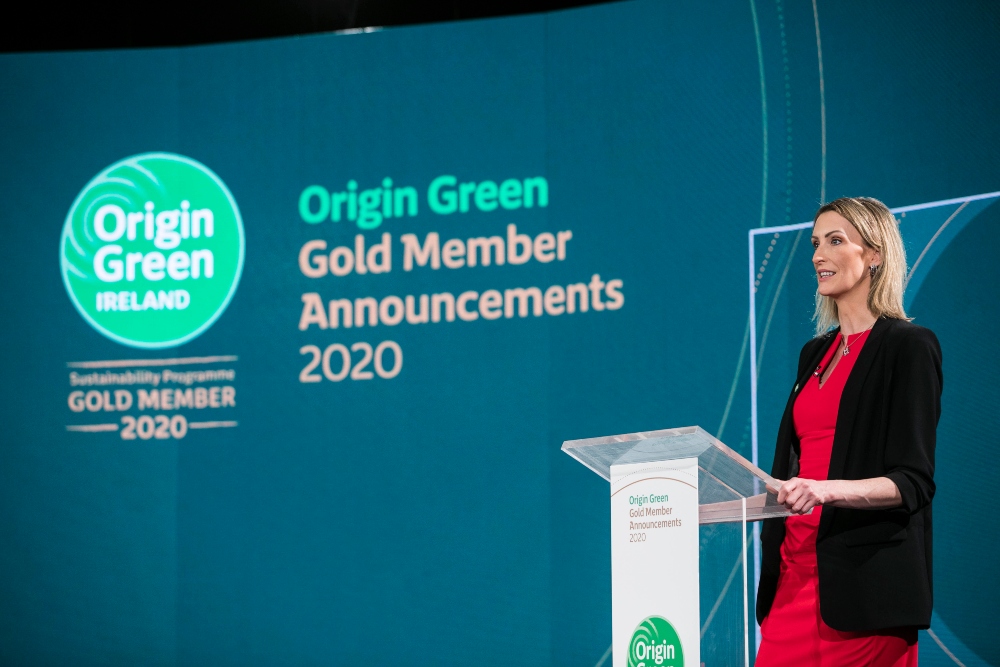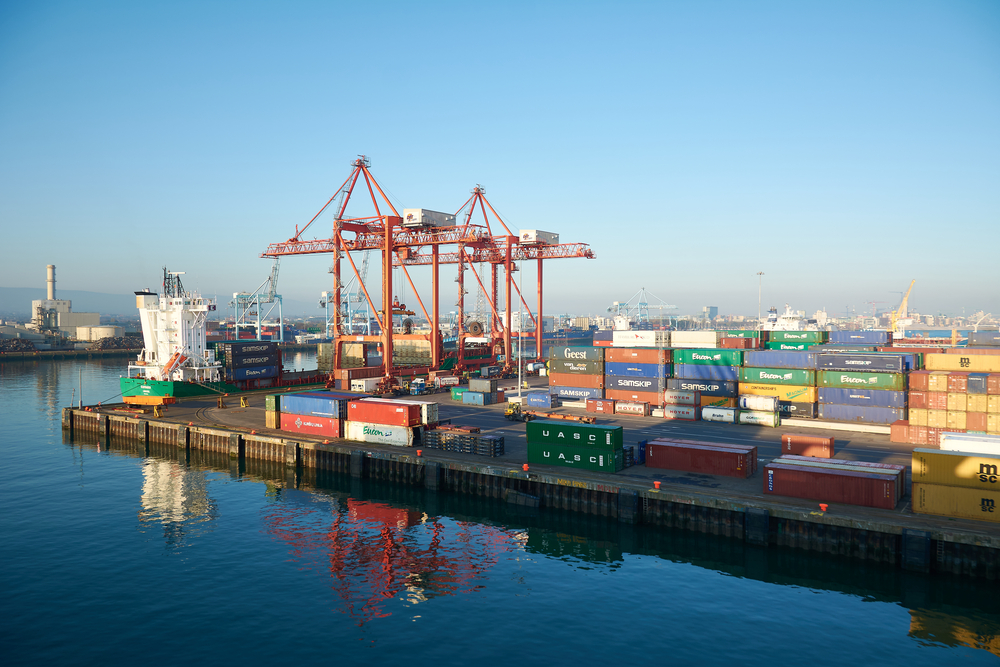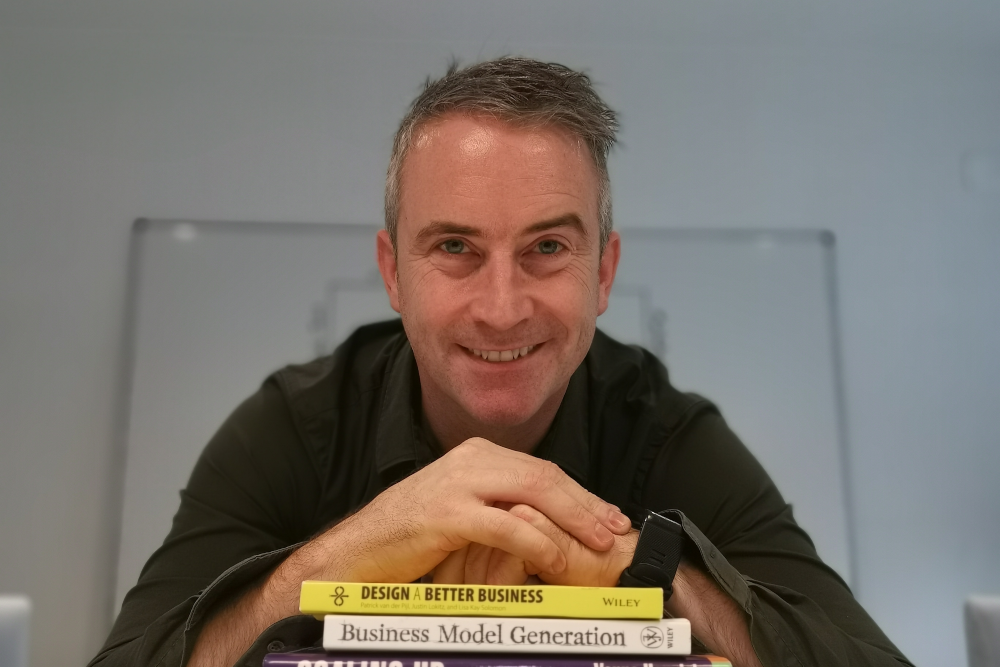Origin Green’s Deirdre Ryan talks to ThinkBusiness about measuring and managing the sustainability credentials of Ireland’s food industry.
The business adage “what gets measured gets managed” comes to mind continually as Deirdre Ryan, director of Origin Green and Sustainable Assurance with Bord Bia, outlines the work involved in driving Ireland’s national food and drink sustainability programme.
Since its inception in 2012 by Irish food board Bord Bia, Origin Green has grown to collaborate with 53,000 farms and 324 leading Irish food and drink companies to prove and improve the sustainability of the products they produce to meet the evolving needs of global customers and consumers.
“This is what consumers are really looking for. Sustainability is something that’s here to stay. It’s not a fad”
Verified members account for 90pc of food and drink exports and 70pc of domestic retailers.
Every week, 650 independent farm audits take place under the Origin Green programme and Bord Bia’s Sustainable Assurance Schemes, and over 260,000 carbon assessments have taken place on beef and dairy farms over a five-year period. To date, verified member companies have set over 2,400 sustainability targets, demonstrating their commitment to improving the sustainability and environmental footprint of their businesses.
The Origin Green Progress Report shows that in a five-year period, food manufacturers delivered an 11pc reduction in energy use per unit of output and a 17pc reduction in water use per unit of output. They donated 4,717 tonnes of surplus food to FoodCloud, planted 9,261 trees on manufacturing sites and donated over €8m to community and charity organisations.
“What Origin Green seeks to do is set targets for both on-farm and company level sustainability programmes,” says Ryan. “What’s unique about is it is really about form to fork, the whole food supply chain on a national scale. So, this is actually a world’s first in this regard.”
Making the grade

Origin Green director Deirdre Ryan. Image: Chris Bellew /Fennell Photography
Ryan says that what makes the programme unique nationally and internationally is that it covers all food types – pig, poultry, beef, lamb, dairy, horticulture – across every spectrum of the supply chain, from the farm to the retailer. Literally, farm to fork. Similar programmes in other European countries tend to be vertically/species focused.
It boils down to quality assurance and sustainability from a farm level right to the packet in the consumers’ hands in the supermarket. “Our inspectors conduct farm audits that lead to the quality assurance mark you would see on beef or lamb packets in the shop. Behind that mark is a rigorous array of audits and assessments that go through medical records, biodiversity, sustainability in a farm’s carbon footprint and more. And we would do around 650 or 700 farm visits every week across beef, dairy, eggs, pig, poultry producers and more.
“We collaborate with these stakeholders to develop the standards and our auditors look at everything from grazing seasons, feed, manure, housing and all of these elements and all of this data then would be connected to various databases such as those of the Cattle Breeding Federation, the Department of Agriculture and it all feeds into a system of traceability.
“We have also developed a carbon navigator that will support farmers aiming to make emissions reductions.”
Beyond the farm there are the food producers and companies that have the ambition to qualify as gold members. “There are around 320 companies and what we focus on is the sustainability plans that they have developed and their targets in areas like sourcing, manufacturing and social sustainability. Targets could include goals such as reducing packaging by 20pc, for example.”
To achieve gold membership, firms must achieve the goals they have set out and they are assessed by external auditors. Gold members are recognised according to different tiers based on size and turnover.
“We have to make it equitable, proportionate, accountable and transparent for all based on energy and carbon footprint targets. And so, targets are based on the scale of your organisation. Small companies or SMEs need to achieve four targets, whereas a larger company would need to achieve eight targets, for example. Ultimately our goal is to recognise the best of the best, regardless of the size of their business.”
As well as helping Irish food businesses from farms to SMEs and multinationals achieve their sustainability goals, measuring and managing on a constant basis makes good business sense for the companies involved.
Informed consumers will vote with their wallets
Ryan said the next level is to match these sustainability endeavours with informed consumers’ rising expectations, particularly when it comes to climate change.
“This is what consumers are really looking for. Sustainability is something that’s here to stay. It’s not a fad. And those customers have requirements that are becoming more and more stringent. And so it’s our job to keep the pace and momentum going. The more proof points we have for the Irish food industry, the more we can sell to the consumer, because sustainability is what they really want.”
At the end of the day, by adhering to high standards the entire supply chain wins because, Ryan reasons, it ultimately drives efficiencies and makes the businesses more competitive.
“They’re setting targets. They’re measuring. They’re managing. They’re cutting out waste and step by step the entire supply chain becomes more efficient and sustainable. The systems that this requires, the focus on quality sourcing, all of it helps them to become better businesses.”
The head of Food & Drink Sector at Bank of Ireland Roisin O’Shea concurs with this. “We see a huge benefit in Origin Green for companies – both as an endorsement of sustainability credentials and a methodology for reviewing operational and strategic risk. It embeds a culture of continuous improvement and efficiency, which speaks volumes about a business.
“Strong sustainable food businesses can help our communities to thrive, which is core to our purpose in Bank of Ireland. Having worked in the food business myself I have seen this in action in terms of the spin-off benefits of local sourcing or the environmental changes a company can support in the local community such as tree planting or the development of sustainable energy models.”
To codify and inspire future sustainability leaders in Ireland’s food industry, Ryan said that Origin Green has collaborated with the Michael Smurfit Graduate Business School to develop a Master’s in Sustainability as part of the Origin Green Ambassador Programme. Ultimately this results in a community or cadre of sustainability leaders who will lead the Irish food industries of the future. This programme has at its heart two interlinked pillars: one focused on education in the sphere of business sustainability, and the other on partnership with major international food companies including M&S, Sainsbury’s, Tesco, Walmart, Alibaba, Ahold, Asda, and Metro Group.
As initiatives go, Origin Green sums up the best of what joined-up thinking looks like: pulling together businesses of all sizes that account for 90pc of food and drink exports and 70pc of domestic retail.
But it’s not a nice to have, says Ryan, it is a necessity. “Agriculture is a significant driver of emissions in Ireland. As a nation we are behind on our targets. So there is huge pressure on the agriculture industry in Ireland to achieve those 2030 targets that the Government has set.
“We have put in place the infrastructure, the quality assurance programmes and we have so many of the producers and processors on board. Because we are an agri nation, we have a disproportionate amount of emissions. We have to ensure that as we expand and grow, we do so sustainably. There’s a lot more pressure on agriculture. And we really need to keep upping our game.”
By John Kennedy (john.kennedy3@boi.com)
Published: 12 February 2021






